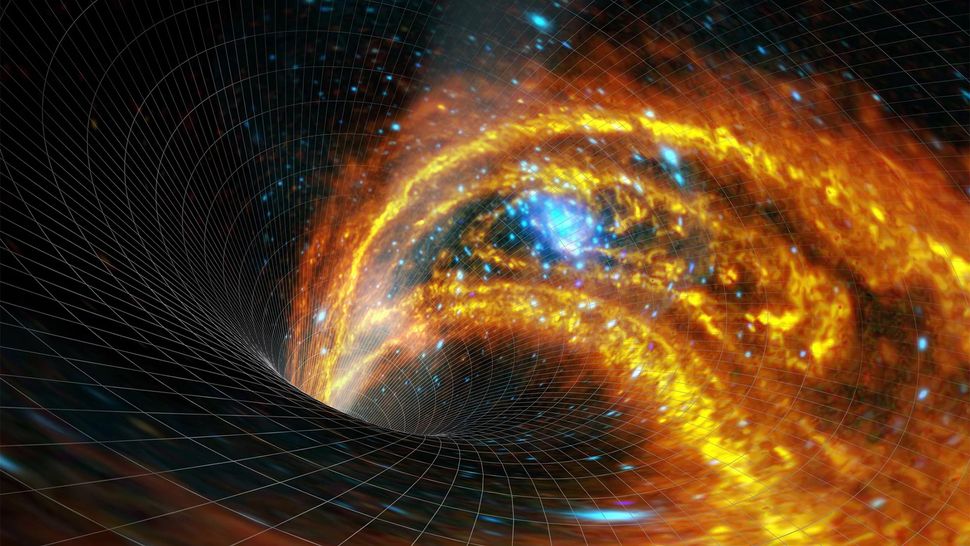Science
Related: About this forumStephen Hawking Was Right: Black Holes Can Evaporate, Weird New Study Shows
By Meredith Fore 4 hours ago

(Image: © Shutterstock)
In 1974, Stephen Hawking made one of his most famous predictions: that black holes eventually evaporate entirely.
According to Hawking's theory, black holes are not perfectly "black" but instead actually emit particles. This radiation, Hawking believed, could eventually siphon enough energy and mass away from black holes to make them disappear. The theory is widely assumed to be true but was once thought nearly impossible to prove.
For the first time, however, physicists have shown this elusive Hawking radiation — at least in a lab. Though Hawking radiation is too faint to be detected in space by our current instruments, physicists have now seen this radiation in a black hole analog created using sound waves and some of the coldest, strangest matter in the universe. [9 Ideas About Black Holes That Will Blow Your Mind]
Pairs of particles
Black holes exert such an incredibly powerful gravitational force that even a photon, which travels at the speed of light, could not escape. While the vacuum of space is generally thought of as empty, the uncertainty of quantum mechanics dictates that a vacuum is instead teeming with virtual particles that flit in and out of existence in matter-antimatter pairs. (Antimatter particles have the same mass as their matter counterparts, but opposite electrical charge.)
More:
https://www.space.com/sonic-black-hole-spews-hawking-radiation.html?utm_source=notification
EveHammond13
(2,855 posts)royable
(1,264 posts)Beartracks
(12,809 posts)tymorial
(3,433 posts)Is hawking radiation exist in there is no such thing as a black hole because nothing can escape a black hole. There can be no evaporation of a black hole because no matter or energy can escape. Radiation is energy and therefore if radiation is causing a black hole to release matter energy then there is no black hole.
cstanleytech
(26,285 posts)If that is the case then clearly the belief that they are one way streets is flawed altogether otherwise we would not be here.
That also means that hawking radiation could exist but the big question is what happens to it after it leaves the blackhole? Does it eventually sometime in the distant future gather together and spawn a new universe or does it simply go on creating new galaxies and stars?
caraher
(6,278 posts)First, this study was not an experimental study of an actual black hole, but of an analogous system (a Bose-Einstein condensate in a lab). They looked at phonons and not photons, and there are quantum features of the actual black hole system that would be different.
I don't see a lot of room for significant skepticism about Hawking radiation. It's a pretty clear consequence of Standard Model physics near an event horizon. The basic mechanism can be explained a few ways; one simple one is through virtual particle pairs being created on the event horizon, with one falling in but the other escaping. The energy for the escaping particle can only come from the black hole, whose mass must therefore diminish.
The escaping particle just becomes a new bit of ordinary matter, and doesn't do anything special that any other electron or positron wouldn't do. It doesn't spawn new universes or do anything particularly exotic by virtue of emerging near a black hole, it just participates in whatever processes its subsequent travels may involve.
Finally, I think we have other circumstantial evidence that black holes evaporate, namely the failure to see any black hole effects at CERN. Theory predicts the production of tiny black holes at the collider, and Hawking radiation theory says they should evaporate very quickly. Before LHC started operating there was a "doomsday" scenario involving an LHC-generated black hole growing and swallowing the Earth. It was a very unlikely scenario thanks to Hawking radiation.